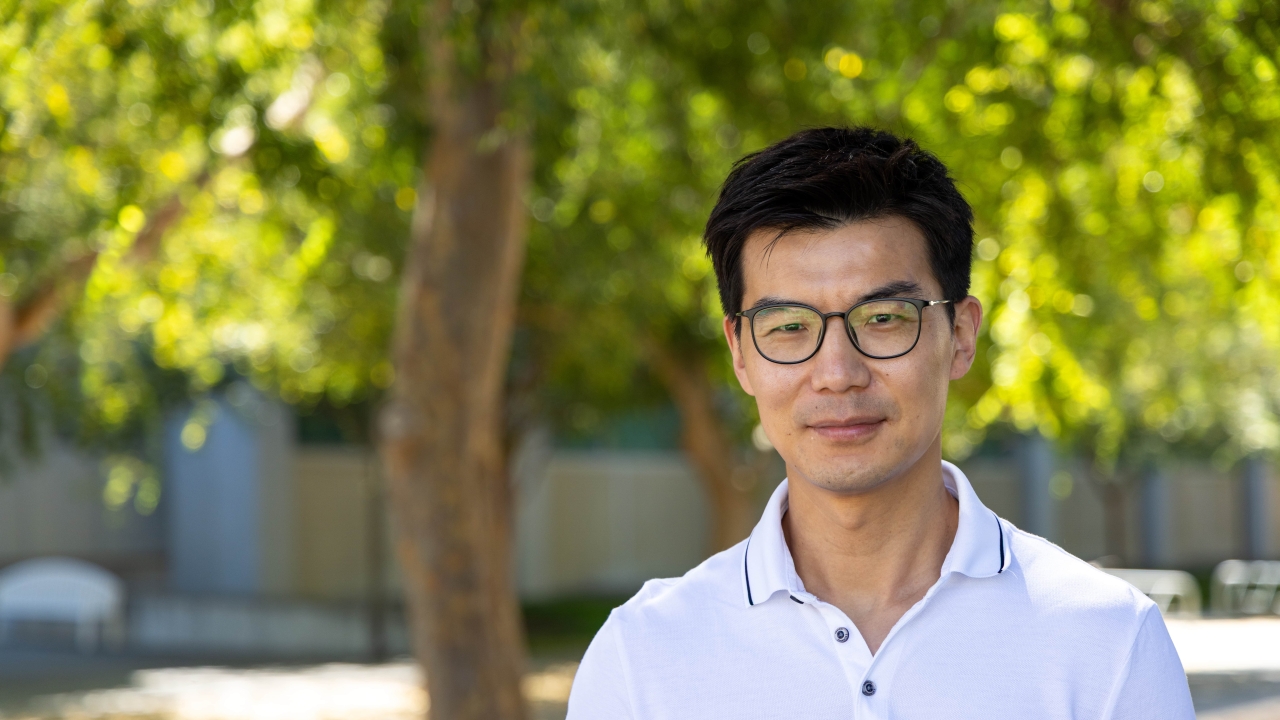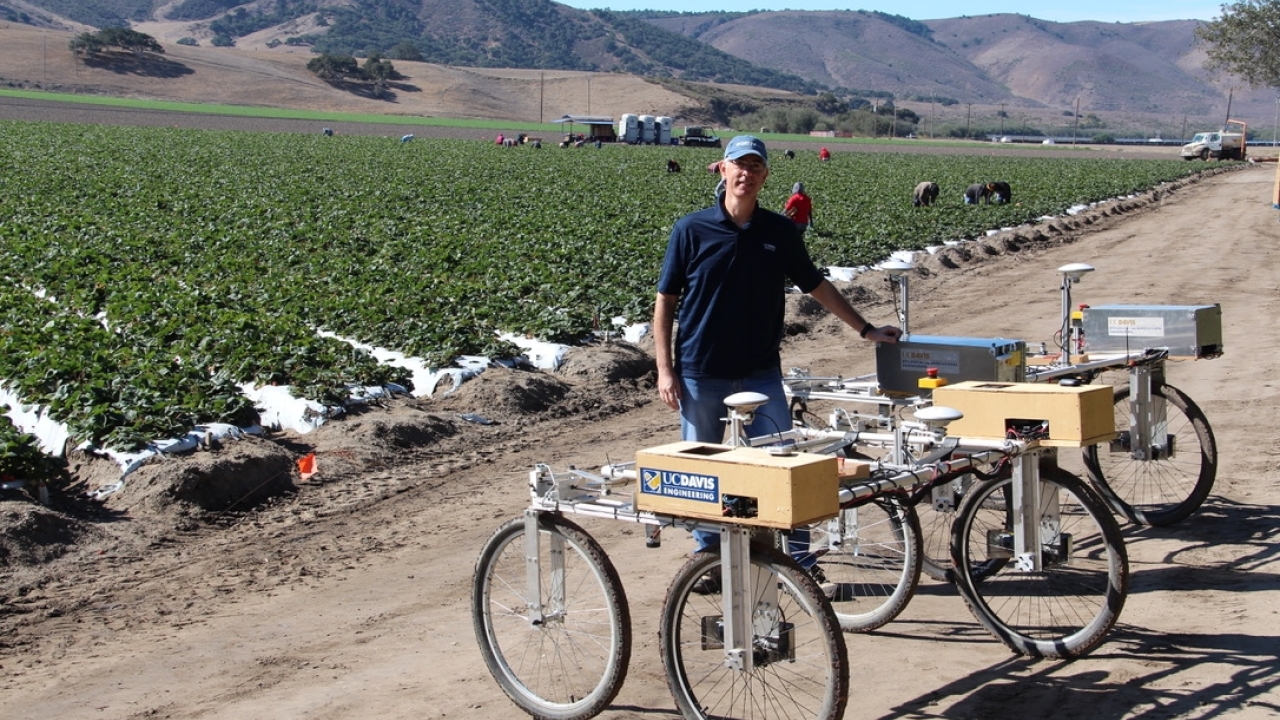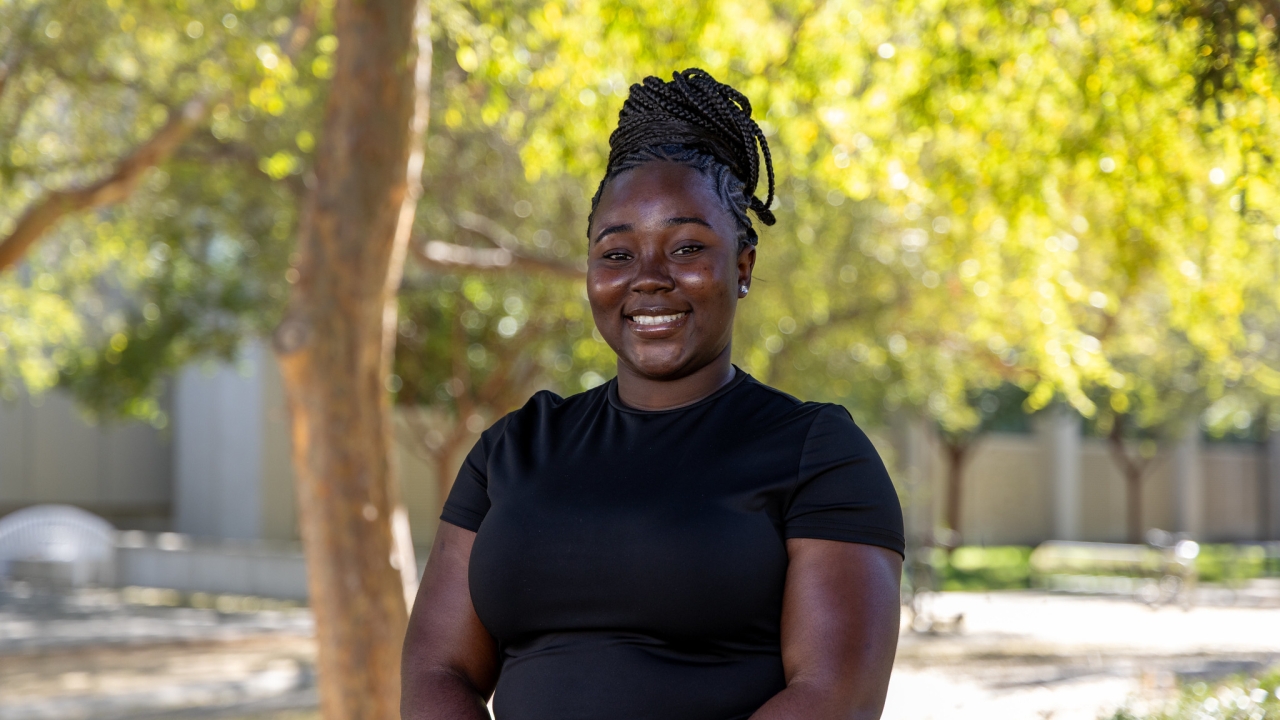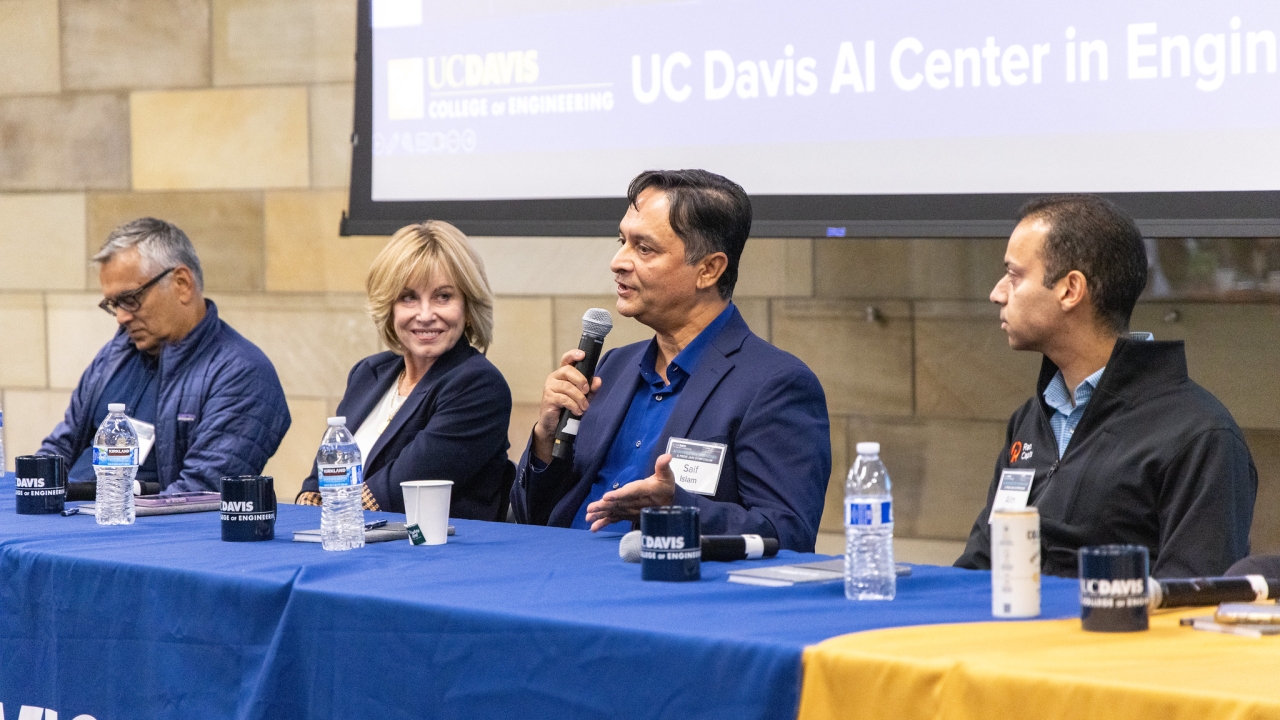
Fighting Disease with Disease by Engineering Viruses
New Assistant Professor of Chemical Engineering Kevin Zhongchao Zhao aims to fight cancer with virus-like nanoparticles
When looking back at his childhood, Kevin Zhongchao Zhao, a new assistant professor of chemical engineering at the University of California, Davis, didn’t always see higher education in his future.
“I come from a small village in China. No one went to college,” he said. “My parents wanted to send me, but I wanted to play with my friends, and my grades were not good.”
But the inklings of his future road began to creep in during middle school and high school. Zhao became interested in biology, and a desire to cure diseases was ignited by world news reports of people contracting HIV and cancer. Closer to home, his father had tuberculosis, which is only treatable with antibiotics.
With new dreams of becoming a scientist, Zhao convinced his parents that he did want to go to college.
“They believed in me, even though I did not do so well in elementary and middle school,” he said. “I studied hard in high school, passed the exam and became the first student in my small hometown to get into college.”
Finding His Path, One Protein at a Time
Zhao attended the China University of Mining & Technology in Beijing, earning his Bachelor of Engineering degree in bioengineering and then his Master of Engineering degree in biochemical engineering. He applied for Ph.D. programs in the U.S., landing at Indiana University Bloomington, where he pursued his degree in biochemistry.
During his Ph.D., Zhao was introduced to viral technology through his research, which involved studying how specific proteins come together to build the capsid, or protective shell, of the Hepatitis B virus and designing new proteins that can influence or control how that shell forms.
“The shell is only a component of the virus, and it’s not infectious,” Zhao said. “It has similar virus behavior, in that it can package stuff, and we can manipulate it to make it deliver what we want.”
Zhao also began reading papers on engineering viruses to act as a delivery system and treat diseases. Then, at a Federation of American Societies of Experimental Biology Virus Structure and Assembly conference, Zhao met Nicole Steinmetz, a professor of chemical and nanoengineering at UC San Diego, whose research focuses on engineering plant viruses for applications like drug delivery and immunotherapies. It was a light bulb moment for Zhao.
“She presented on using plant viruses to treat cancer through engineering,” he said. “I got very excited. She offered me the opportunity to learn how to engineer viruses to treat cancer, and I felt like I had found the path I wanted to go on.”
Zhao conducted a postdoctoral research fellowship under Steinmetz from 2020 through 2025. Joining UC Davis, Zhao aims to combine everything he has learned to embark on his own research, using diverse engineering approaches to develop virus-like nanoparticles that can be used in applications like immunotherapy, drug delivery and gene therapy to treat cancers.
Davis as a Catalyst
Zhao says UC Davis is the perfect fit for his research program to reach its potential, with the core facilities in the College of Engineering and the UC Davis Comprehensive Cancer Center, a National Cancer Institute-designated facility part of UC Davis Health in Sacramento that will help facilitate a significant portion of his cancer-focused research.
“UC Davis has the resource fundamentals, like flow cytometry, to study basic science. We have the School of Veterinary Medicine, which can help us humanely test our drugs in animals. Then we have the UC Davis Cancer Center, where there are doctors and clinicians who can provide guidance on moving forward with clinical trials,” said Zhao. “It’s really an environment where a research program can become successful.”
On a personal note, Zhao is excited about the opportunities that living in Davis will offer. As a beginner snowboarder, he looks forward to visiting Tahoe. The Napa region is on his list as well.
“I’ve never had an opportunity to really learn about wine, so I’m excited to explore.”





